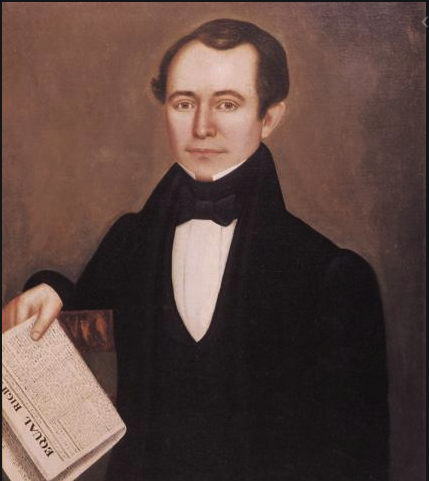Free Labor, Slave Labor, and Sectional Politics: William Leggett, February 10, 1835

This selection comes from an editorial entitled, "Governor McDuffie's Message." The editorial was primarily engineered to assure Governor McDuffie of South Carolina that the "democracy" of the North, i.e., Northern Democrats, were not "immediate abolitionist" fanatics and posed no threat to the South's Constitutional rights in property.
To one who is interested in the politics of slavery and emancipation, and the nexus between the people of the North and South, however, this piece offers a window into an attitude in direct competition with the abolitionists.
August Glen-James, editor
It is here the emancipated slaves would seek a residence and employment, and aspire to the social equality they could never enjoy among their ancient masters. If they cannot bring themselves up to the standard of the free laboring white men, they might pull the latter down to their own level, and thus lower the condition of the white laborer by association, if not by amalgamation.
Governor McDuffie is still more misled in his ideas of the part taken by the democracy of this and the eastern states in the mad and violent schemes of the immediate abolitionists, as they are called. He may be assured that the abettors and supporters of Garrison, and other itinerant orators who go about stigmatizing the people of the south as “men stealers,” are not the organs or instruments of the democracy of the north, but of the aristocracy—of that party which has always been in favor of encroaching on the rights of the white laborers of this quarter. It is so in Europe, and so is it here. There, the most violent opponents of the rights of the people of England, are the most loud in their exclamations against the wrongs of the people of Africa, as if they sought to quiet their consciences, for oppressing one color, by becoming the advocates of the freedom of the other. Daniel O’Connell is one of the few exceptions, and even he, in one of his speeches, with the keenest and most bitter irony, taunted these one-sided philanthropists with perpetuating the long enduring system of oppression in Ireland, while they were affecting the tenderest sympathy for the blacks of the West Indies. Was Rufus King, the great leader of the Missouri question, a representative of the democracy of the north? And were not the interests of the planters of the south sustained by the democracy alone?
Governor McDuffie may make himself perfectly easy on the score of the democracy of the north. They are not agrarians, nor fanatics, nor hypocrites. They make a trade neither of politics, nor philanthropy. They know well that admitting the slaves of the south to an equality of civil and social rights, however deeply it might affect the dignity and interests of the rich planters of that quarter, would operate quite as injuriously, if not more so, on themselves. The civil equality might affect both equally, but the social equality would operate mainly to the prejudice of the laboring classes among the democracy of the north. It is here the emancipated slaves would seek a residence and employment, and aspire to the social equality they could never enjoy among their ancient masters. If they cannot bring themselves up to the standard of the free laboring white men, they might pull the latter down to their own level, and thus lower the condition of the white laborer by association, if not by amalgamation.
Not only this, but the laboring classes of the north, which constitute the great mass of the democracy, are not so short-sighted to consequences, that they cannot see, that the influx of such a vast number of emancipated slaves would go far to throw them out of employment, or at least depreciate the value of labor to an extent that would be fatal to their prosperity. This they know, and this will forever prevent the democracy of the north from advocating or encouraging any of those ill-judged, though possibly well-intended schemes for a general and immediate emancipation, or indeed for any emancipation, that shall not both receive the sanction and preserve the rights of the planters of the south, and, at the same time, secure the democracy of the north against the injurious, if not fatal consequences, of a competition with the labor of millions of manumitted slaves.
If any class of people in this quarter of the Union have an interest in this question, independent of the broad principle of humanity, it is the aristocracy. It is not those who labor and have an interest in keeping up its price, but those who employ labor and have an interest in depressing it. These last would receive all the benefits of a great influx of laborers, which would cause the supply to exceed the demand, and consequently depress the value of labor; while the former would not only experience the degradation of this competition, but become eventually its victims.
If we look back to the political history of this country, it will be found that the true democracy of the north has always supported the southern policy. They sustained every republican candidate for the Presidency from that section of the Union (for such we considered General Jackson) and their uniform co-operation distinctly indicates a near affinity of interests and principles between the republicans of the south and the democracy of the north. The latter will probably, at the ensuing Presidential election, put forward a candidate identified with these interests and principles, and will the former desert their old friends, who never deserted them? Will they aid in dividing and distracting the Republican Party by multiplying candidates, and thus by throwing the decision upon Congress, pave the way for a successful intrigue that may again cheat the people of their choice, and rest the ascendancy of an aristocratic faction which has always been arrayed in opposition to their interests.
Again we assure Governor McDuffie, and all those who imagine they see in the democracy of the north, the enemies to their rights of property, and the advocates of principles dangerous to the safety and prosperity of the planters of the south, that they may make themselves perfectly easy on these heads. The danger is not in the democratic, but the aristocratic ascendancy. The whole is a scheme of a few ill-advised men, which certain whig politicians have used to set the republicans of the south against the democracy of the north, and thus, by dividing, conquer them both.
